#and it's not really a poem it's from nightwood by djuna barnes
Explore tagged Tumblr posts
Note
That Michal Ajvaz quote about introducing cruel polytheism into the city transportation system is pure gold.
A few more: Maldoror, by Comte de Lautreamont aka Isidore Ducasse, for pedal-to-the-metal weird; Michael Marshall Smith's Only Forward (surreal sci fi noir); Kazuo Ishiguro's The Unconsoled; Djuna Barnes' Nightwood; A Dark Stranger by Julien Gracq (don't expect too much from the characters, who really only play a supporting role to the mesmerising evocation of place); Fernando Pessoa's The Book of Disquietude; Edward Dorn's Gunslinger, an epic acid western poem that was a big influence on me; Patrick White's The Aunt's Story.
Anything by Rikki Ducornet is worth checking out. The Fountains of Neptune is one of my all time faves, dreamlike yet perfectly constructed, written with great beauty, emotionally engaging, somewhere between magical realism and surrealism on the odd-ometer I guess. Heartily seconding the rec in the comments for Mikhail Bulgakov's The Master and Margarita, also magical realism. While we're on Russian authors I want to sneak in a mention of Oblomov -- not really an odd book I guess, but without giving too much away it's about an eccentric character, and as a bonus the author is (Ivan) Goncharov.
Goose of Hermogenes by Ithell Colquhoun is a short surreal book with an alchemical theme.
Three odd/surreal/weird Jeffs: Jeff VanderMeer, Jeff(rey) Ford and Jeff Noon.
Surrealist Women: An International Anthology, Ed. Penelope Rosemont, is a large collection of work by often-sidelined female creators.
Carson McCullers' The Heart Is a Lonely Hunter, The Member of the Wedding, and The Ballad of the Sad Cafe are all well seasoned with oddness. (ETA : I should have said, oddness is fundamental to them.)
Decadent oddness: J.K. Huysmans' A Rebours (Against the Grain), Rachilde's Monsieur Venus, Aubrey Beardsley's Under the Hill, the latter a romp and an easy read. Also light reading: The 'Decadent' quartet -- the Decadent Cookbook, Gardener, Traveller and Sportsman -- by Medlar Lucan and Durian Gray, live up to the promise of the authors' names.
Pls give recommendations for Odd books 🙏
Here we go, a list of literary oddity :) This post contains majestic spheres, alien taxonomies, cruel subway polytheism, a fourth-dimensional cat, disturbing earthworms, infinite space football, existential mussel terror, a Parisian absurdist time loop, and a picture of a telegraph-pole-man-cheetah. I'm not exactly recommending these books, in the sense that I won't take any complaints if you find them more odd than good, and some of them transcend the concepts of good and bad anyway.
• The Other City, Michal Ajvaz. It's all like this:

• Contes du demi-sommeil, Marcel Béalu ('Half-asleep tales') —is the book that prompted my post about stories that have no ambition or justification beyond being odd. I'm sad that it hasn't been translated :( One of the tales is about a strange opaline sphere that rolls on the road. It doesn't accelerate when the road becomes a steep slope but continues rolling majestically. At one point it floats away towards the sky. Someone wonders if it was the moon. Someone else says authoritatively "It was an angel's egg." Everyone is reassured by this explanation. The whole thing feels exactly like remembering a dream you had. There is also a man who reads too much and whose body atrophies so only his head is left and his wife puts it in an egg cup for better stability.
• Leonora Carrington— The Skeleton's Holiday, or maybe the Hearing Trumpet. I've read them so long ago but I think the latter is the one with the old ladies and nuns? There's also a guy who was murdered in his bath by a still-life painter because he said there was a carrot in one of his paintings, but it might not have been a carrot? It's hard to remember details from this book without feeling like I might be making them up. Bonus Leonora Carrington painting which kind of feels like a short story:

• The Codex Seraphinianus, of course. I wish there were more bizarre encyclopaedias out there.


Also I love this review:

• Sleep Has His House, Anna Kavan —I really liked the way this book used language; making life feel like a fever dream even more than in Samanta Schweblin's Fever Dream (which I really liked too.)
The eye is checking a record of silence, space; a nightmare, every horror of this world in its frigid and blank neutrality. The actual scope of its orbit depends on the individual concept of desolation, but approximate symbols are suggested in long roving perspectives of ocean, black swelled, in slow undulation, each whaleback swell plated in armour-hard brilliance with the moonlight clanking along it . . .
• The second half of Michael Ende's Neverending Story, where things get stranger! I remember the hand-shaped castle with eyes and the city of amnesiac former emperors and the miserable ugly worms who cry all the time out of shame then create beautiful architecture with their tears...
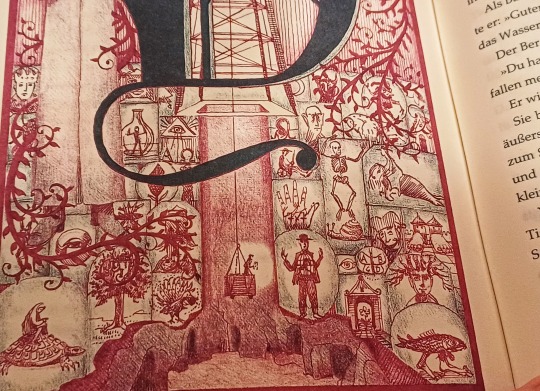
• The Gray House, Mariam Petrosyan. This is the one I had in mind when I talked about a 'museum of the strange, but one you wouldn't want to be trapped in after closing time'. Another book that made me feel uncomfortable in a similar (good) way was Edward Carey's Observatory Mansions, the protagonist of which is a man who curates an odd private museum and can't stand the sight of his own hands.
• Oh, speaking of uncomfortable, and hands—He Digs A Hole, by Danger Slater. To me this book was in the more-odd-than-good category but I liked its refusal to have a coherent philosophical meaning. It's about a man who can't sleep so he goes to his garden shed and saws off his hands and replaces them with gardening tools. Then he starts digging a hole. And then it gets weird. (Read at your own discretion if you have a worm phobia; there's some body horror featuring sexually aggressive earthworms. And then it gets disturbing.)
• 17776 — Someone sent me an ask a few years back to recommend this online multimedia narrative to me and I really enjoyed it! Here's the summary, borrowed from the wiki page: Set in the distant future in which all humans have become immortal and infertile, the series follows three sapient space probes that watch humanity play an evolved form of American football in which games can be played for millennia over distances of thousands of miles. The work explores themes of consciousness, hope, despair, and why humans play sports.
• Saint-Glinglin, Raymond Queneau —the author admitted that this book presents some "internal discontinuities." I didn't like it much but I respect the talent it takes to write a novel where everything feels like a random digression, including the key suspenseful scene that matters to the plot. The one digression I loved had to do with the way the narrator is existentially horrified by various sea creatures. It's like he dreads them so much he can't help but think about them when he should be telling a story.
The oyster... This gob of phlegm, this brutal way of refusing the outside world, this absolute isolation, and this disease: the pearl... If I conceptualise them even a little, my terror starts anew. The mussel is even more significant than the oyster and even more immediately admissible in the domain of terror. Let us indeed consider that this little sticky mass whose collective stupidity haunts our piers, consider that it is alive in the same way as a cow. Because there are no degrees in life. There is no more or less. The whole of life is present in every animal. To think that the mussel, that the mussel has, not a conscience, but a certain way of transcending itself: here I am once again plunged into abysses of anxiety and insecurity.
Near the beginning he philosophises about what would happen if a man and a lobster were the only two survivors of the apocalypse. The lobster would break the man's toe and the man would say, "We are the only beings that remain on this devastated Earth, lobster! The only living beings in the universe, struggling alone against the universal disaster, don't you want to be allies?" But the lobster would disdainfully walk away towards the ocean, and "the sight of the inflexible and imperturbable lobster pierces the sky of humanity with its unintelligible claws." (I can't overstate how little this has to do with the rest of the book.)
• Autumn in Beijing, Boris Vian —needless to say the story does not take place in autumn nor in Beijing.* To the extent that it can be said to be "about" something, it's about people trying to build a train station in a desert with tracks that lead nowhere. (I just went on goodreads to check the title, and it's actually called Autumn in Peking in English. I also discovered that it was featured in a list of Books I Regret Reading. I liked this book, but I understand.)
(* French writers love doing this—like when Alphonse Allais said about his 1893 book The Squadron's Umbrella "I chose this title because there aren't any umbrellas of any sort in this volume, and the important notion of the squadron, as a unit of the armed forces, is never brought up at all; in these conditions, hesitating would have been pure madness.")
• The Library at Mount Char, Scott Hawkins—I fear this one makes a little too much sense for this list, but you can't say it isn't weird; and I loved it and recommend it any chance I get.
• The Eleven Million Mile High Dancer, Carol Hill —this book was so wacky and made me laugh. I've not yet managed to successfully recommend it to someone; its brand of odd didn't resonate with the people I know who've read it but that's okay. You could say it's about a woman astronaut whose weird cat disappears into the fourth dimension (or the quantum realm?) and she goes to space to save him—but that makes the book sound more straightforward and less messy than it is. Her cat leaves her a note before he disappears:

• The Bald Soprano, Ionesco —fun fact, there's a tiny theatre in the Latin Quarter in Paris where this absurdist play has been staged every night for nearly 70 years, with the exact same set design and costumes and everything, like the actors are stuck in a time loop. They celebrated the 20,000th performance this year! There's an actress who has been playing her character for 40 years and said joining this theatre was like joining a religion. I've been going to see this play as a New Year tradition with my best friend since we were 14, so I love it madly, though I wouldn't say it's good, necessarily—the author said it was about "absolutely nothing, but a superior nothing."
• Statuary Gardens; or Les Mers perdues (apparently not translated) by Jacques Abeille. This man is obsessed with weird statues. Unfortunately I find his writing style rather dull—I feel like he takes strange ideas and makes them feel mundane in a bad way...! But his books still have a nice, quiet, oneiric atmosphere, and images that stayed with me, like a solitary gardener trying to grow stone statues in the depleted soil of a walled garden. Here are some illustrations from the second one:
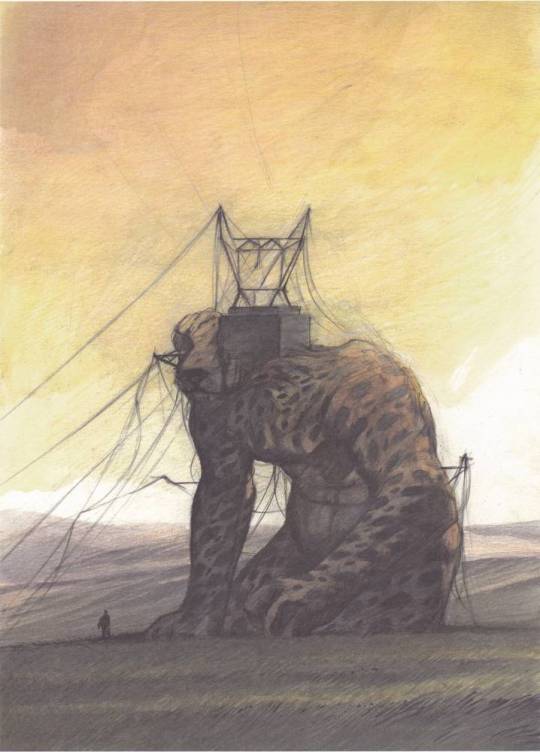

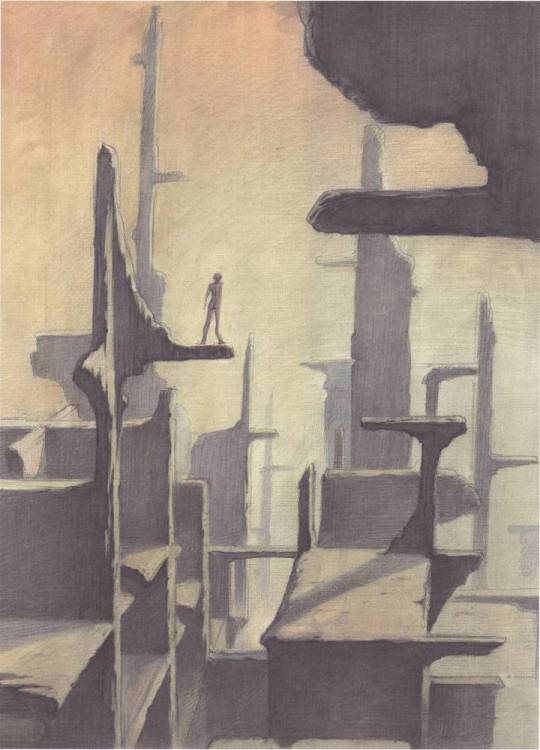
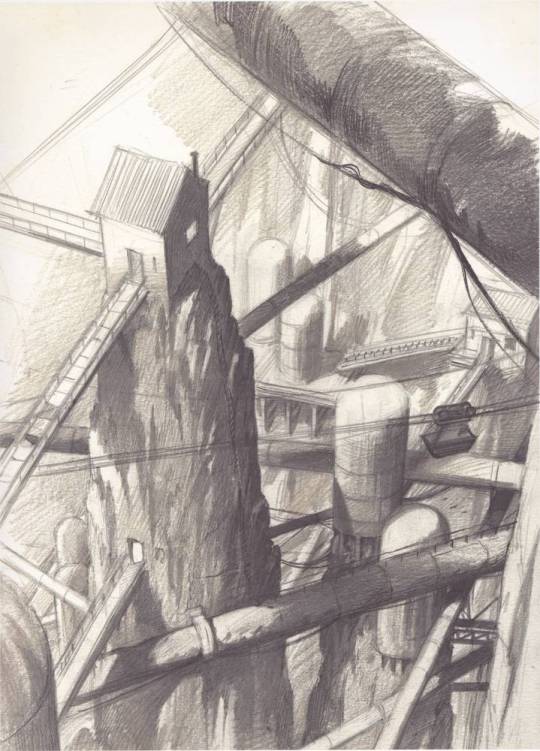

I'll look into some of the books recommended on my previous post! (and I agree with the people who brought up Cortázar, Borges, and Junji Ito. <3) Some potentially-odd books I have on my to-read list: Clive Barker's Abarat, Goran Petrović's An Atlas Traced by the Sky, Salvador Plascencia's The People of Paper, Jean Ray's Malpertuis; Jan Weiss's The House of a Thousand Floors; Brice Tarvel's Pierre-Fendre.
589 notes
·
View notes
Note
more thoughts on jackie,shauna .
oooh now you're asking for trouble anon. this is kinda wide so i'll swing wide (this starts and end with codependency though) and go with no plan. if you want something specific pls send another ask.
so. jackie. shauna. or rather jackieshauna. no space between them right? (that's probably the only thing that makes me accept this as the ship name instead of shaunackie).
(i have to put a read more because this is long as fuck believe me)
we know shauna and jackie have been friends for years, probably since they got into school.
we didn't get to see much about jackie's parents when she was still a kid but jackie doesn't seem to hold her mom or her dad in her heart. and yet when she's gone it seems all they can talk about is her.
they're a mirror of shauna's reaction in that they can't seem to let go. even if they probably didn't tell her they loved her, or said it but didn't show it in a way that jackie could receive it (or maybe jackie's mom was too worried about her valium problems), they have to fill the void. they have to believe she'll come back and everything will be the same. that's why her room is left untouched, that's why they make her gifts that she wouldn't even have liked when they celebrate her birthday every year with a picture from when she was 17.
and shauna can't bear to go see them, she suffers every year at jackie's birthday, first because of the guilt she still has regarding jackie's death, and then because she has to go to the taylor's house. they show her just what she's been doing this whole time.
in 101, shauna masturbates while looking at her daughter's boyfriend's picture because she's stuck in the past. in her world jackie's still alive, and in a way callie is jackie to her. because she's a part of jeff and jeff was a part of jackie (which is why shauna went after him). and in this scene, callie's boyfriend is jeff in shauna's head, even unconsciously (interesting to note that callie ends up dumping him and makes you think about what could have been).
and at the end of the episode, where her control kind of slipped because of the "journalist" looking into her past, she immediately went to read her journals. and not the end of it, when jackie's gone, but the very beginning, right after the crash. and not any part either, but the part where she shares and doubts jackie's hopeful sentiment. they have to find us right? they're gonna go get us? why haven't they found us?
so she's right back in it, really she never left. when nat dies, young nat tells her she never even left the plane, lottie says they brought "it" back with them, but there was no "it", "it" was just us. they brought themselves back, teenage them that was still happy and fine (none of them were fine).
so shauna's back in new jersey, she brought her teenage self back, and with her, teenage jackie. jackie's still here with her all the time, in her journals and her hallucinations and in jackie's parents house. because they're a single being, a unit. they're inseparable, a bit of jackie is part of shauna, she ate her, jackie kept shauna alive and now shauna's keeping jackie alive.
and if she's teenage shauna then she's fine, right? she doesn’t have a single problem. but she also feels guilty all the time. if jackie's alive and shauna's married to jeff then she's just betraying her again and again. and callie is the walking talking manifestation of that. she's both the proof that jackie's alive and dead. that she's still there all the time but gone forever. exhibit: callie in jackie's uniform. (and she falls back in her pattern of lying and hiding things in her affair with adam, that starts because of jeff in shauna's mind, the same way she slept with jeff because of jackie).
and honestly? she can make people believe she's fine as long as jackie stays in her. as long as jackie's hers really. but as soon as she's torn away from her insides, jackie becomes dangerous, she hurts and she tears something away from shauna, she takes her away from herself. when she's dating jeff she alienates shauna from herself. when she's put in front of jackie at her birthday she drops her filter, she says she doesn't even like callie (but she can't help loving her), when callie wears jackie's uniform at the party shauna's forced to open up and in spite of her efforts the façade falls.
if jackie isn't hers and hers only then shauna's falling apart. codependency at its finest and at its worst.
and it's not like jackie exempt of that either, we just get less time to see it. but shauna throws it all in her face when they fight in 110, she made her play soccer so they'd stay together, she tells her what to wear so that shauna will stay hers in a way, she assumes shauna's going to rutgers with her and that they'll be best friends forever and that nothing will ever go wrong because her life is perfect (not touching on heteronormativity here but it sure is present imo). she feels left out as soon as shauna starts hanging out with tai in the wilderness, she doesn't want anything to do with the thing that's taking shauna away from her and into the group's good graces (her butchering skills).
that's, I think, the fundamental difference in the way they deal with their codependency. shauna runs toward what's breaking it because she thinks that looking at it up close will either make it disappear or will spontaneously provide a solution to her problem (exhibit: fucking jeff, going to jackie's room at the taylor's, opening up to callie at the party). she grasps blindly at the last of what she thought was a constant in her life, she tries to keep the control and often ends up making things worse (though if holding on fails, shauna's solution is to kill and destroy so she can keep this control).
whereas jackie runs away from it. she keeps an order about things and the relationship but if it looks like it's about to blow then she's gone (exhibit: leaving the cabin after the fight, going buddy buddy with mari at the lake when she feels shauna pulling away from her, not investing herself in any "useful" activity at the camp). where shauna tries hard as she can to hold on to what is slipping away, jackie just lets it go.
they're like deers that get too close to each other and get their antlers tangled (i think there's a poem about this that i'll try to find) and caught in each other and trying to pull away just ends up killing them. it's not that they got too close for comfort, it's that they got so close, getting away from each other even for an inch or a second would kill them. they couldn't live without each other.
but they also got so close they couldn't see each other as a whole. they have to take each other at face value because it's all they can see at this point. jackie died because she couldn't live without the image she made of shauna in her head, the image of an even younger shauna that followed jackie around without a care in the world because this jackie was hers, and hers only.
and shauna is still alive, only because she carries with her an image of a teenage jackie that both forgave her (which allows her to keep carrying jackie with her) and holds her accountable (being cruel though honest justifies shauna's outburst during the fight, if jackie was mean to her then she kind of deserved it right?) which in turn absolves shauna.
they couldn't keep living together the way they were so they had to tear themselves away from each other.
yet even physically apart, there is no way to think one without feeling the other.
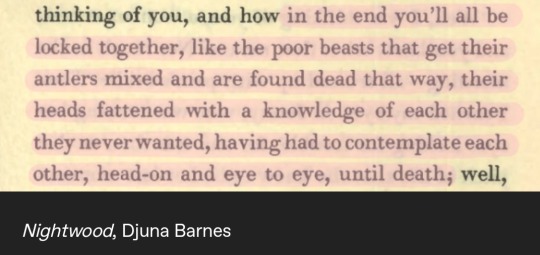
#yellowjackets#shauna shipman#jackie taylor#shaunajackie#jackieshauna#shauna sadecki#take the pencil and write under my name#mine#yellowjackets meta#shauna shipman character of all time#jackie too but we don't see much of her anymore so this is a lot of extrapolationg on her side#also wait going to find the antler poem#ok it took me 30 minutes of looking through my screenshots of peoms but i have it#and it's not really a poem it's from nightwood by djuna barnes#i was gonna write it here but it's a picture and not text so i'll add it to the post at the end#i had a lot of fun writing this but i don't think i can look at it anymore so you're getting the halfway organized version
24 notes
·
View notes
Text
what i’m reading
the complete stories, clarice lispector
adam and i spoke with ken baumann about “beauty and the beast; or, the enormous wound” for a lil something we’ve been cooking up that yes of course i’m behind on (sorry adam) but besides “beauty and the beast,” a stunning piece of literature, i’ve read the first handful of stories and i know i’m late on this bandwagon but clarice lispector is hot shit
the 120 days of sodom, the marquis de sade
speaking of hot shit...
great expectations, kathy acker
despite this being the slimmest acker novel i’ve read (the others being love and guts in high school and empire of the senseless, one of my favorites) it’s probably the densest and most enigmatic. and since i have huge holes in my literary knowledge i have no idea how much she really plagiarizes or if she’s just treating literature as a smorgasbord for plating what may be to some tastes a disturbingly upalatable melange, but to mine is a charmingly chaotic comfort dish.
in the devil’s snare, mary beth norton
i have 5+ books on the salem witch trials to read, probably overkill but hey so were the witch trials (booing, tomatoes being thrown) no but seriously folks, the witch trials were some crazy shit. this book posits that the psychological and political effects of skirmishes with the wabanaki indians to the north of salem village goes some way towards explaining the atmosphere of fear and mistrust that plagued essex county in 1692. i’m only about 100 pages in so I’m just learning about these Indian wars, and honestly not exactly retaining all of it because like I said I have 5+ books to read for a paper i have to write for my mlis program, a paper where i’m going to argue something to the effect of “damn, historical events are basically impossible to understand or adequately explain yo”
the white goddess, robert graves
i understand this even less than the details of king philip’s war, because i have 0 knowledge of celtic mythology or whatever, and graves presents his argument let’s call it idiosyncratically around i guess interpreting and also editing? a long poem titled ‘the battle of the trees,’ as a way of interrogating the structure of myths. i’m not there yet but my understanding is he posits, sort of like frazer with the golden bough, that european poetic myths all center around praise of what he calls ‘the white goddess’ and that patriarchal christianity decentered this most sacred of muses, causing poetry to decouple itself from its rightful aim, ie invocation of the white goddess. interestingly, in the preface, he claims that poetry of a “magical” quality still occasionally gets written, but not by poets “conscientiously” studying the “grammar and vocabulary” of poetic myth, as graves sets out to, but through an “almost pathological reversion to the original language—a wild Pentecostal ‘speaking in tongues’” which begs the question, then why set out to rigorously study the grammar of poetic myth?
the crying of lot 49, thomas pynchon
not exactly reading this so much as studying novella structure; also on my reference list is djuna barnes’s nightwood, which i recently read and loved in inverse proportion to how much of it i “got.” might also revisit good morning, midnight by jean rhys, or maybe something by marguerite duras.
gravity’s rainbow, thomas pynchon
yes i’m reading gravity’s rainbow again okay, but it’s adam and angie’s fault this time
3 notes
·
View notes
Text
tagged by @spellman-sisters-mortuary! thank you so much!! i’m... not really a fic blog so i kind of customized these questions to focus more on my headcanons/meta.
your name: my url? it’s mary’s last name with the elements reversed! wardwell = wellward
fandoms you write for: ummmmmmmmm caos and a bunch of really niche fandoms on my other rp blogs.
where you post: here, but i do have an ao3 which i’ll dramatically reveal (just kidding it doesn’t matter) if i ever write caos fic lol
most popular one shot meta or headcanon or thread: i think some of the stuff i’ve written about lilith as archetypal patriarchal victim has gotten strong reactions... also the stuff i’ve written about mary’s lesbian identity and her religious background. also this
most popular multi chapter story multi part meta or headcanon or thread: that’s gonna be the abjection essay(s). tamsin even made me this

which is basically a window onto my soul.
favorite story meta or headcanon or thread you’ve written: this hc about everyone’s drink orders... i also have threads with jenni on discord that i’d def count among my faves largely because of like, just the opportunity to freely dig into the character’s psyche. i’ve learned a lot about lilith and mary in particular thru that, and it’s helped me contextualize things like mary’s anxiety, how that’s changed over time in her life, how she approaches feelings of intensity.
story meta or headcanon or thread you were nervous to post: this one about lilith grooming sabrina. i was really really anxious that it might come off as me sexualizing sabrina honestly, but i felt that the hc was really crucial to how i read season 1 and the time before lilith began to care for sabrina. also given that people literally ship them (and that those people hate me) lmao i shouldn’t have been worried...
how do you choose titles tags: bhfmgh... fuck... with great difficulty. “dolor hic tibi proderit olim,” mary’s tag, is “someday this pain will be useful to you” in latin. “no way out of that coursing blood,” lilith’s tag, is from a poem by rilke i think. “sorry i do what i did / but it came naturally,” eve’s tag, is from the haim song “the wire” which i was listening to A Lot when i was first thinking about eve’s character. i particularly like my mary/lilith tag which is “the darkness is the closet in which your lover roosts her heart,” a quote from djuna barnes’ nightwood.
do you outline: Noooooooooooooooooooo everything i’ve ever posted has been spat out of my brain in real time
how many of your stories are complete? lol
how many of your stories are in progress? looooooooooool
coming soon: who the hell knows... i’m just making this shit up as i go along
do you accept prompts? honestly yeah, but i can never guarantee that i’ll write anything about a given prompt.
upcoming story meta or headcanon or thread you’re most excited to write? 14 page essay on how lilith’s cleavage gave us gay rights
tagging anyone who wants to do this tbh
7 notes
·
View notes
Text
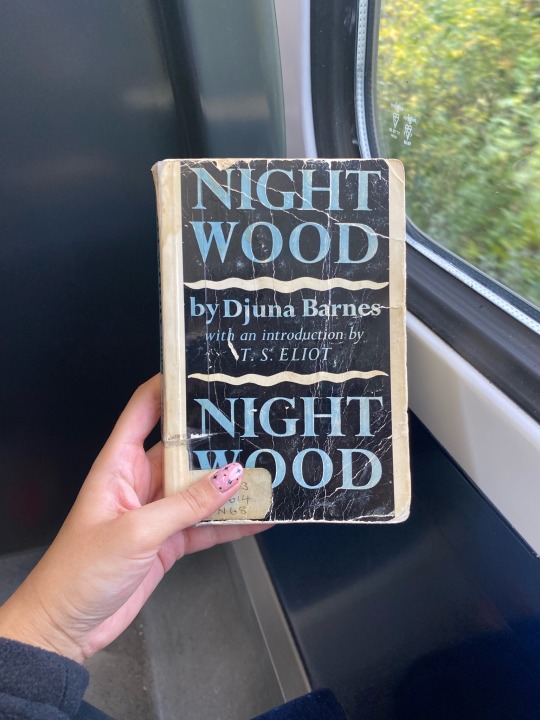
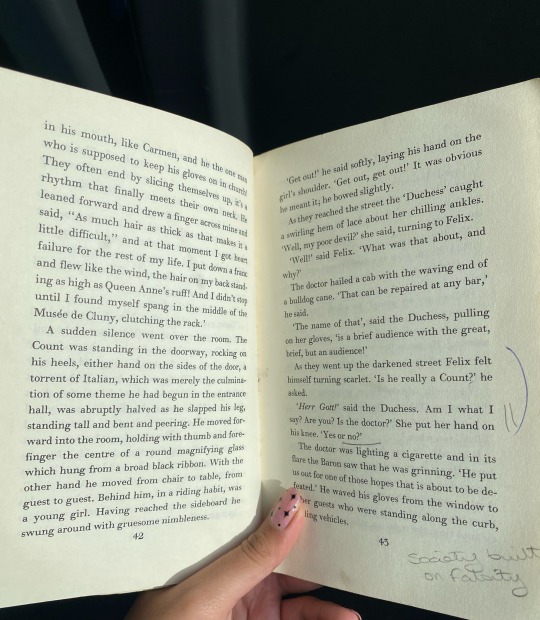
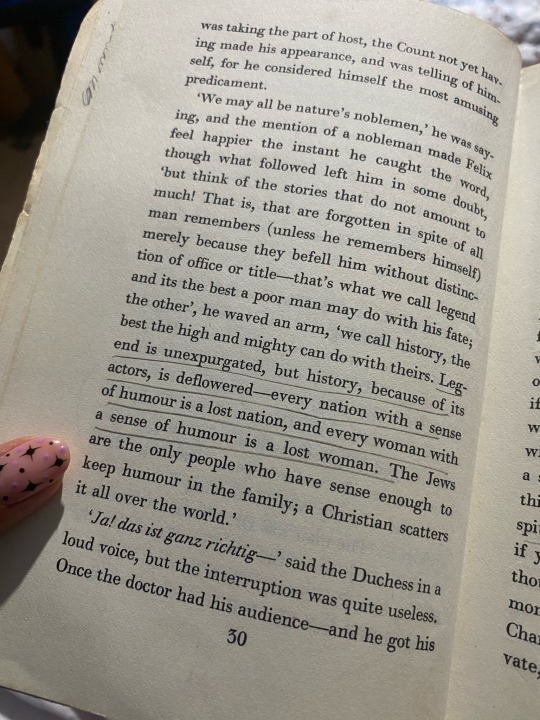
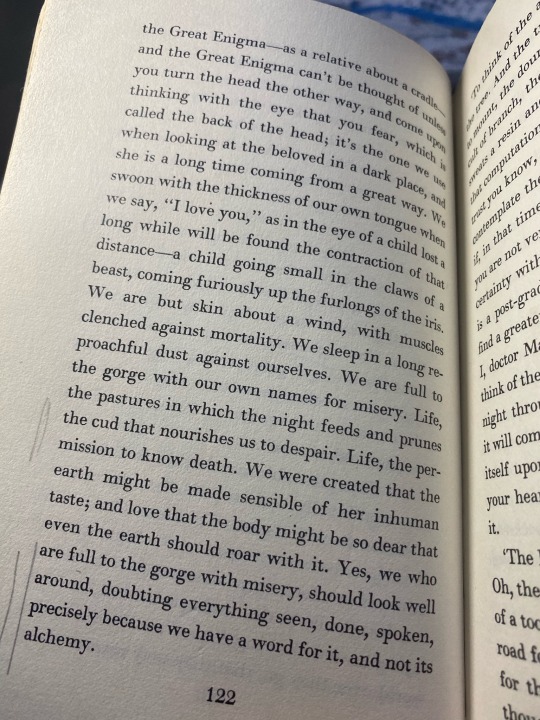
Nightwood by Djuna Barnes
3 stars
This novel, which I was assigned for my Modernist module, was not the easiest to get through. It reads like a poem in a lot of places, with the language being vibrant and beautiful yet completely confusing. It felt like any structure of a normal novel was thrown out the window. I had a love-hate relationship with this style of writing, as some parts dragged on without making much sense and others seemed so lyrical and profound. I did manage to find myself intrigued in the story, which centres on the destructive and lost soul of Robin Vote and her hold on other characters (mainly women), who all seem to be more obsessed with her than she ever is with anyone.
This book is definitely not something I would have ever picked up myself but one I enjoyed nonetheless and apart from the Doctor (who was just really annoying), I was captivated whilst reading about the characters and their interconnecting lives.
0 notes
Text
A Q&A with developmental editor J.C. Gabel
Inkshares’ developmental editor J.C. Gabel (who just finished development on Kyle James’ much anticipated Not Afraid of the Fall) began his career in publishing at the age of 19. In the mid-’90s, he handmade the first issue of a zine called Stop Smiling, and has been making books full time since 2010 for a variety of publishers (Taschen, Phaidon, Chronicle, Rare Bird, Melville House), and also through his own imprint, Hat & Beard. He contributes regular features, criticism, profiles and interviews for the Wall Street Journal, Playboy, Bookforum, The Paris Review, Los Angeles Times, New York Times, and Wallpaper.
We recently caught up with Gabel to speak about literary nightstand favorites, common mistakes writers make in early drafts, the importance of physical books, and more.
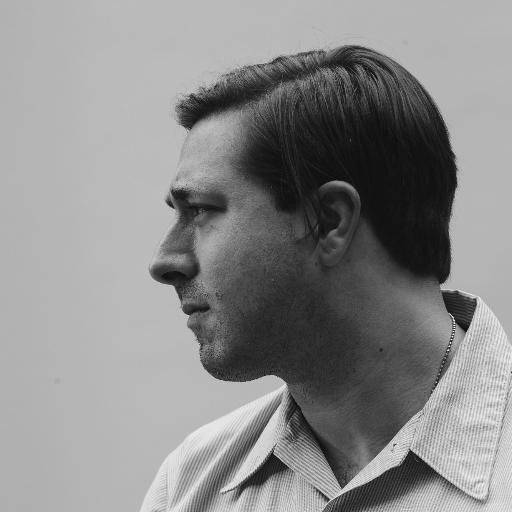
Is there a book you read in 2016 that stays with you most? Several, but the one that keeps popping up in conversations is Utopia Parkway: The Life and Work of Joseph Cornell by Deborah Solomon, the New York Times staff writer and art critic. This was the first biography of the famously reclusive Cornell, and it got a spectacular reissue by Other Press in New York City.
If you could live a day in the life of a character from any book who would it be? A tie: Ignatius Reilly from A Confederacy of Dunces or Raoul Duke from Fear and Loathing in Las Vegas.
Which books are currently on your nightstand? I am in the midst of re-reading a spat of modernist classics, while finishing up work on a graphic survey book of New Directions, one of the best independent publishers of literature in the world for 80 years and counting. Notably favorites from the canon: Nightwood by Djuna Barnes; Journey to the End of the Night by Louis Ferdinand Celine; Laughter in the Dark by Vladimir Nabokov; Wisdom of the Heart by Henry Miller; Miss Lonelyhearts by Nathanael West; The Emigrants by W.G. Sebald; Collected Poems by Stevie Smith; Berlin Stories by Christopher Isherwood; everything by Clarice Lispector and Muriel Spark.
Can you tell us a little about your background? Where did you go to school? How did you get into book editing? What was the first book you ever worked on? I grew up making zines with my friends in Chicago as a teenager. I also used to work at record labels, bookstores and record shops in the pre-broadband Internet era. By 19, Stop Smiling, “The Magazine for High-Minded Lowlifes,” was born, and took off a few years later, as a glossy magazine. We all migrated to New York in the late 1990s, but always kept a big foot in the door in Chicago, and continued to publish regularly for 15 years, before we all made a left turn into books when it was clear that substantive magazines were dying as solvent businesses; everything was becoming gamed by new-fangled internet tricks and advertorial muck. More practically: I’m a print purist; therefore, books seemed like a lot more reasonable a medium to work within and still make money in our Post-Digital Age while still making physical product. Digital books don’t interest me. It’s all about the object. I have been making books full time since 2010 for a variety of publishers (Taschen, Phaidon, Chronicle, Rare Bird, Melville House), and also through my own imprint, Hat & Beard. All in all, I’m what you would call an “accidental editor.”
You have a background in nonfiction, but mainly photo/illustration books that likely have quite different developmental needs than narrative nonfiction or memoir. How would you characterize these differences? I’m morphing into more of a curator, art/literary historian and small publisher. I’ll always write and edit books, but my day-to-day headspace is moving into a new arena, which I think is healthy after 20 years in the trenches of traditional publishing.
I’ve always been a non-fiction junkie: oral histories, biographies, memoirs, a book of letters, cultural histories—these are the titles I spend my off time (what little I have) reading. I also—for many years—wrote about nonfiction books for various magazines, websites and newspapers, including the New York Times, the LA Times, the Wall Street Journal, The Paris Review, the Oxford American, Wallpaper and Playboy, where I was a staff writer for several years.
Nonfiction is now king when it come to sales. This seemed like a natural fit for me to break out of the so-called art book genre. I have also done several other word-driven nonfiction books.
From your experience, how would you explain what a developmental editor does to an author who has yet to dive into the publishing process? A developmental editor is, first and foremost, the person who has to make tough decisions about what needs to stay or go, and how to best tell the story, at any costs. This is hard to accept, but it’s part of “the process.”
What is the most common mistake you've seen new authors make in their early drafts? 1. Not understanding grammar and how it works. 2. Writing a first draft that is longer than James Joyce’s Ulysses.
What's your typical process like when working with an author on their manuscript? What can they expect in terms of feedback? I dive in pretty deep. I usually read the book three times before marking it all up to see what can really go immediately vs. what has to be re-written, per se. This is a long process unless it’s one’s full time job. I usually have three to four months with a book of this length to get it into shape so that it can be made into galleys; then printed in its final format.
If you could give first-time authors one piece of advice on how they can improve their manuscript before handing it in for a developmental edit, what would you tell them? Think about how others will read your work on a first pass when you finish your work. Then, ask yourself: Will the work grab their attention so that you can finish the book in a few sittings? If the answer is “No,” then you have to keep cutting the book down to the most digestible length before turning it into any publisher. This will save everyone A LOT of time and energy and avoid frustration and editorial impasses.
#developmental editing#developmental editor#editing#editors#books#reading#lit#interview#J.C. Gabel#book publishing
3 notes
·
View notes